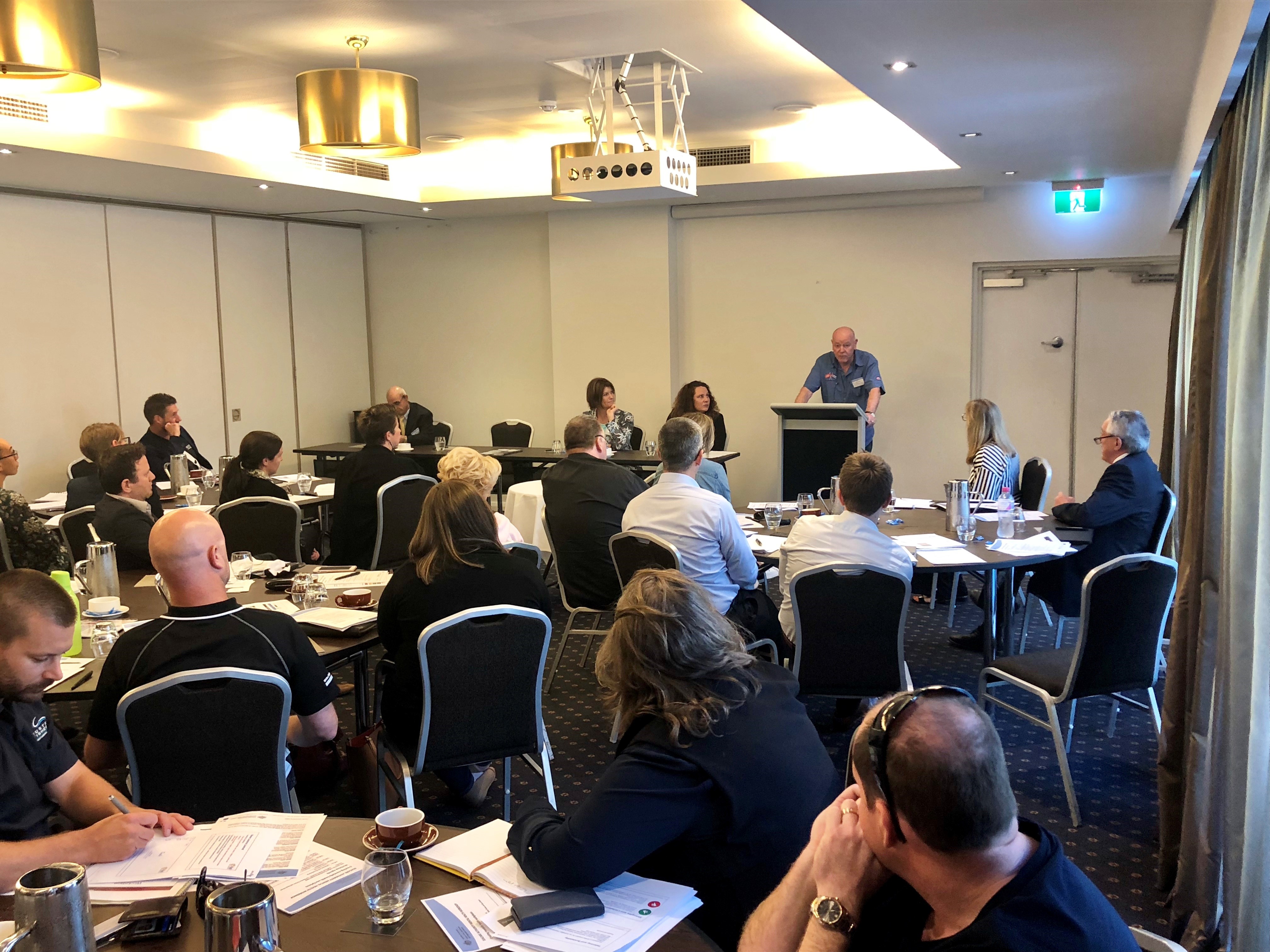Published: 9 Dec 2018
A workshop on Seafarers’ Mental Health was hosted by the Seacare Authority in Fremantle on Tuesday 20 November. Seacare is a government authority responsible for seafarers’ workers’ compensation and OHS. It is the first event the Seacare Authority has held since former minister Michaelia Cash tried to bring in legislation to abolish the Authority in 2016.
There was a high level of interest in the topic, with the room at the Esplanade Hotel packed to capacity with seagoing industry employers and seafarers. Fifteen members and officials of the Maritime Union of Australia (MUA) attended the workshop and contributed to the discussion articulately and passionately throughout the day. Seafarers raised the personal impact of mental health issues, the importance and effectiveness of a good peer-support programs, and discussed how to assist workmates in accessing professional help when they needed it. They were also keen to see more research done on mental health issues among Australian seafarers.

MUA WA Branch Secretary and National President Chis Cain spoke on a panel and captivated the attention of the room as he described the toll that seafaring work takes on workers.
Hunterlink CEO Gavin Kelso described the characteristics of good employee assistance programs for seafarers, and the unique work that Hunterlink does providing these services in the maritime industry. Natasha Lindfield, crewing manager at Solstad Farstad, and employer member of the Seacare Authority, gave a devastating account of the suicide of a seafarer on one of the company’s ships, and response by the ship’s crew and management.
Nicole Gray, a psychologist from the Kiel Centre discussed the importance of workplaces giving mental health the same priority given to physical health and safety, to identify workplace triggers of poor mental health, and to address those risks. Employers should also give people resources to support their mental health, and she described her work rolling out a peer support personal resilience program for a major multinational.
The Australian Maritime Safety Authority (AMSA) was a sponsor of the event and Operations West Manager Reza Vind reported on the results of an academic study supported by AMSA and the Australian Research Council that scientifically documented how fatigue, sleep problems, work pressure, and job insecurity contributes to poor mental health for seafarers. Conversely, the study found that psychological well-being for seafarers was linked to:
While this study was mainly carried out with international seafarers, AMSA is seeking to carry out a similar study domestically. The MUA has already expressed our interest in being a part of the next stage of the research. The full report is available here, with the key sections on pg. 51-54 (https://www.amsa.gov.au/safety-navigation/seafarer-welfare/assessing-determinants-and-consequences-safety-culture-maritime).
“We congratulate the Seacare Authority on this successful event and thank AMSA for supporting it” said MUA national secretary Paddy Crumlin. “The Seacare Authority has an important role to play in highlighting the problems faced by workers in this unique and dangerous industry. We urge all employers to ensure that they have quality and relevant support and employee assistance programs in place, such as those run by Hunterlink. We know the risks, and there is no excuse.”
“The links between rosters, fatigue and the mental health of seafarers are clear,” said MUA National President Chris Cain. “We have dealt with too many tragedies. We will continue to campaign in the workplace for better rosters that allow workers regular and reasonable time to recover with their families. We will campaign for permanent jobs that reduce the constant stress of looking for employment and then getting used to a new ship and a new crew.”
The Seacare Authority is likely to run another event on seafarers’ mental health in Melbourne in the first half of 2019. Details will be circulated when they become available. One was scheduled in November but was unfortunately cancelled due to lack of registrations.
All seafarers are also requested to participate in the survey on seafarers’ mental health being carried out by Yale University and supported by the ITF, details are here: http://www.mua.org.au/yale_university_survey_on_seafarers_mental_health.